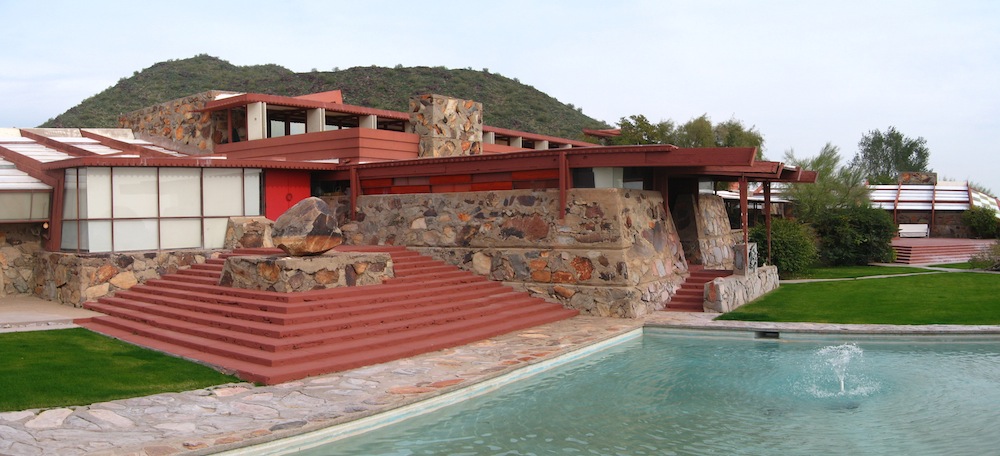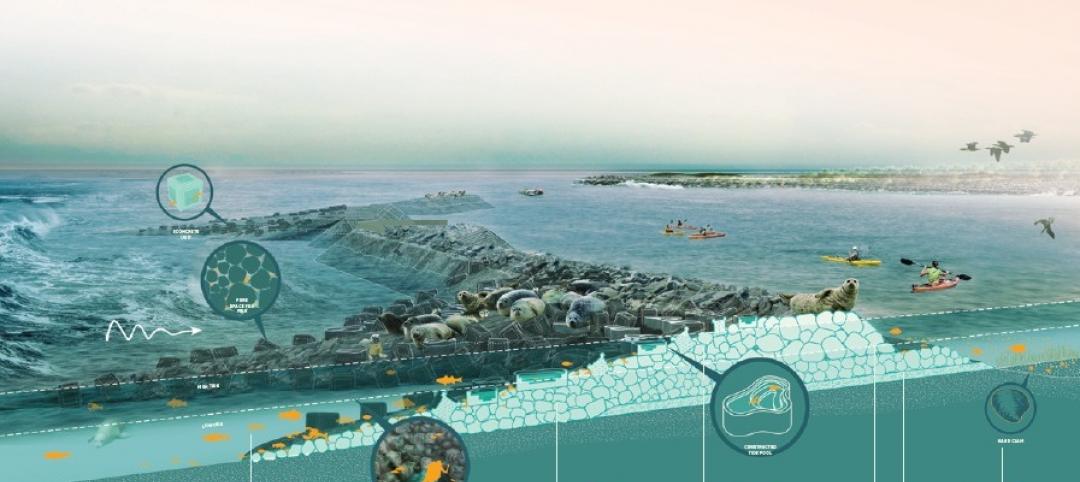The Frank Lloyd Wright School of Architecture at Taliesin announced today that it had reached almost 50% of the $1 million fundraising goal it needs to reach by the end of August on its way to independent status. The remaining $500,000 of these funds must be promised to the school by August 25 for the school’s Campaign for Independence to move forward.
In December of 2014, after an agreement between the Board of The Frank Lloyd Wright Foundation and The Frank Lloyd Wright School of Architecture, the School agreed to raise $2 million, with $1 million of it by the end of this month, in order to achieve the financial autonomy necessary to become an independent organization.
Accreditation for the school has been threatened because the Higher Learning Commission changed its by-laws and would no longer accredit schools that are operating divisions of larger institutions with multi-faceted missions.
The School’s professional M.Arch degree program offers graduate students design-intensive studio experiences at campuses in Taliesin West (Scottsdale, Ariz.) and Taliesin (Spring Green, Wis.). Over the last year, the school has revamped its curriculum to provide a better experimental graduate program in architecture. It focuses on learning how to make the human-made environment more sustainable and open. Students work with local communities to both design and build projects, and they make shelters that each student lives in for his or her final semester.
Accreditation for the school has been threatened because the Higher Learning Commission (HLC) changed its by-laws and would no longer accredit schools that are operating divisions of larger institutions with multi-faceted missions. Facing the possibility of the Frank Lloyd Wright School losing accreditation and potentially closing, longtime supporters suggested the possibility of raising funds to create and support an independently-incorporated school.
The Foundation Board agreed that, if the school's community could raise funds sufficient to demonstrate that the new organization would have “its own financial resources” (as explicitly required by the HLC’s by-laws), then spinning off the school would not present the same obstacles. The new, independent school organization would take ultimate fiduciary responsibility for itself.
As part of the new structure, the Foundation would donate over $1 million in facilities-related cash expenses every year, related to the school's use of Taliesin West and Taliesin as its campuses (at no cost to the school). The Foundation would also contribute an additional subsidy of $580,000 to the school in 2015, with decreasing levels of such additional transitional support over the next five years (but always continuing to cover 100% of annual facility-related expenses which total more than $1 million annually).
In order to achieve the desired independence and continue as a stand-alone School of Architecture, gifts and pledges for an initial $1 million in contributions must be received by August 25, 2015 – and gifts and pledges for a second million must be received by December 31, 2015.
Related Stories
Sponsored | | Oct 29, 2014
Historic Washington elementary school incorporates modular design
More and more architects and designers are leveraging modern modular building techniques for expansion projects planned on historical sites. SPONSORED CONTENT
| Oct 29, 2014
Diller Scofidio + Renfro selected to design Olympic Museum in Colorado Springs
The museum is slated for an early 2018 completion, and will include a hall of fame, theater, retail space, and a 20,000-sf hall that will showcase the history of the Olympics and Paralympics.
Smart Buildings | Oct 29, 2014
SCAPE’s 'living breakwaters' resiliency development wins 2014 Buckminster Fuller Challenge
New York-based landscape architecture firm SCAPE won the Buckminster Fuller Institute’s 2014 Fuller Challenge, billed as socially responsible design’s highest award.
| Oct 28, 2014
4 keys to mastering 'design thinking' and the iteration process
When using design thinking and iteration, we’ll sometimes spend multiple days iterating idea after idea, heads down, only to realize we still don’t have it right, writes HDR's Amy Lussetto. She offers tips for success with these idea-nurturing tools.
| Oct 28, 2014
Miami accepts more modest plan to renovate its convention center
The city of Miami has awarded an $11 million contract for its on-again, off-again convention center renovation to Denver-based Fentress Architects, which will serve as the design criteria professional on this project.
| Oct 28, 2014
Kean University creates Michael Graves School of Architecture
Winner of the AIA Gold Medal, the National Medal of the Arts, the Topaz Medallion and the Driehaus Prize for Architecture, Graves is best known for his contemporary building designs and prominent public commissions.
| Oct 27, 2014
Davis, Calif., latest city to join race to develop 'innovation hubs'
The city plans to develop two "innovation centers" with a total of seven million sf of commercial space geared for local research and technology companies.
| Oct 27, 2014
Report estimates 1.2 million people experience LEED-certified retail centers daily
The "LEED In Motion: Retail" report includes USGBC’s conceptualization of the future of retail, emphasizing the economic and social benefit of green building for retailers of all sizes and types.
| Oct 27, 2014
Top 10 green building products for 2015
Among the breakthrough products to make BuildingGreen's annual Top-10 Green Building Products list are halogen-free polyiso insulation and a high-flow-rate biofiltration system.
| Oct 27, 2014
Studio Gang Architects designs residential tower with exoskeleton-like exterior for Miami
Jeanne Gang's design reinvents the Florida room with shaded, asymmetrical balconies.














